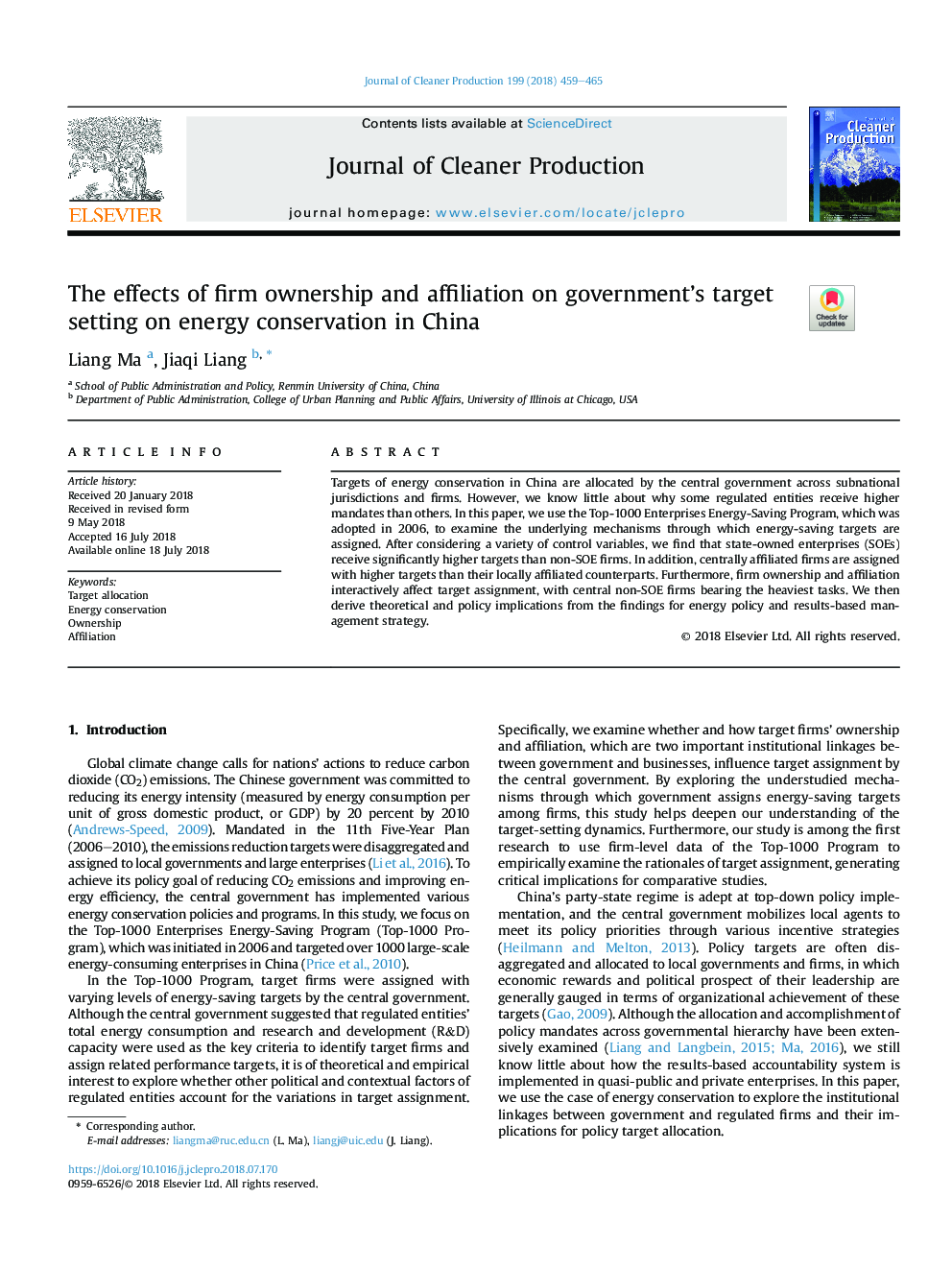| Article ID | Journal | Published Year | Pages | File Type |
|---|---|---|---|---|
| 8093208 | Journal of Cleaner Production | 2018 | 7 Pages |
Abstract
Targets of energy conservation in China are allocated by the central government across subnational jurisdictions and firms. However, we know little about why some regulated entities receive higher mandates than others. In this paper, we use the Top-1000 Enterprises Energy-Saving Program, which was adopted in 2006, to examine the underlying mechanisms through which energy-saving targets are assigned. After considering a variety of control variables, we find that state-owned enterprises (SOEs) receive significantly higher targets than non-SOE firms. In addition, centrally affiliated firms are assigned with higher targets than their locally affiliated counterparts. Furthermore, firm ownership and affiliation interactively affect target assignment, with central non-SOE firms bearing the heaviest tasks. We then derive theoretical and policy implications from the findings for energy policy and results-based management strategy.
Related Topics
Physical Sciences and Engineering
Energy
Renewable Energy, Sustainability and the Environment
Authors
Liang Ma, Jiaqi Liang,
